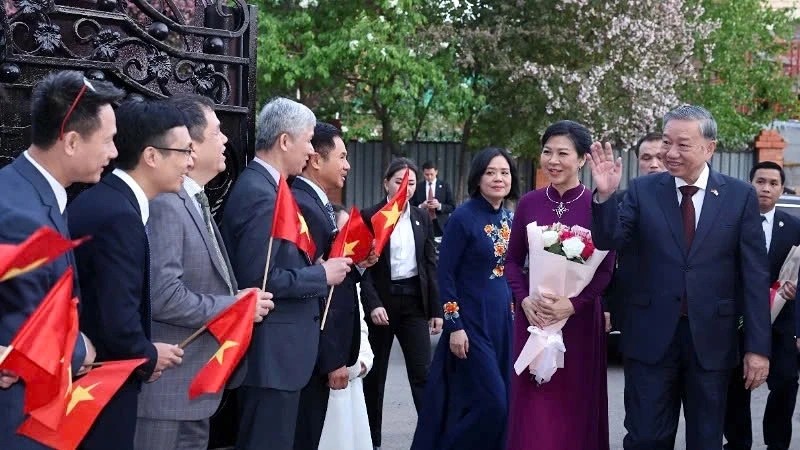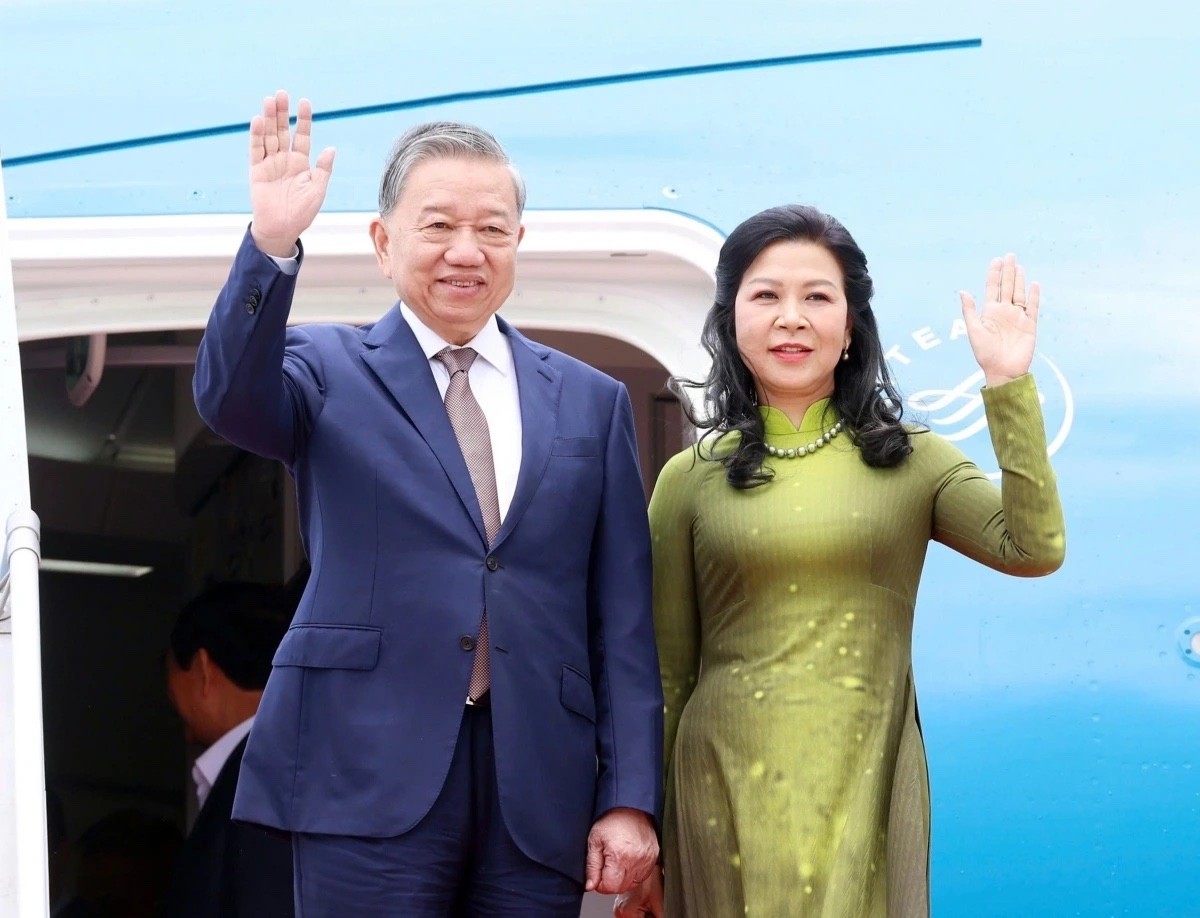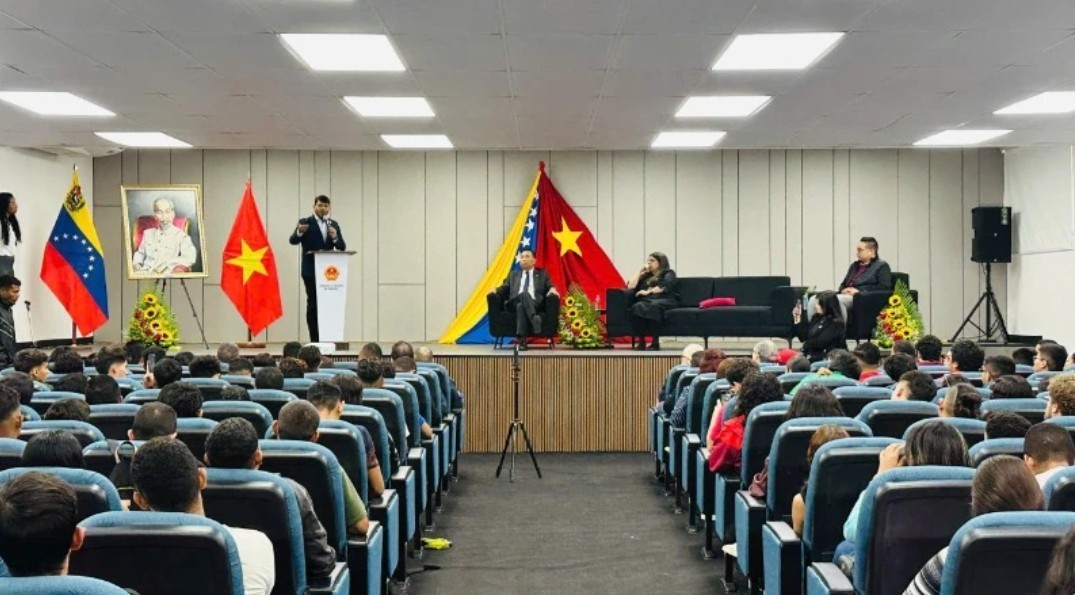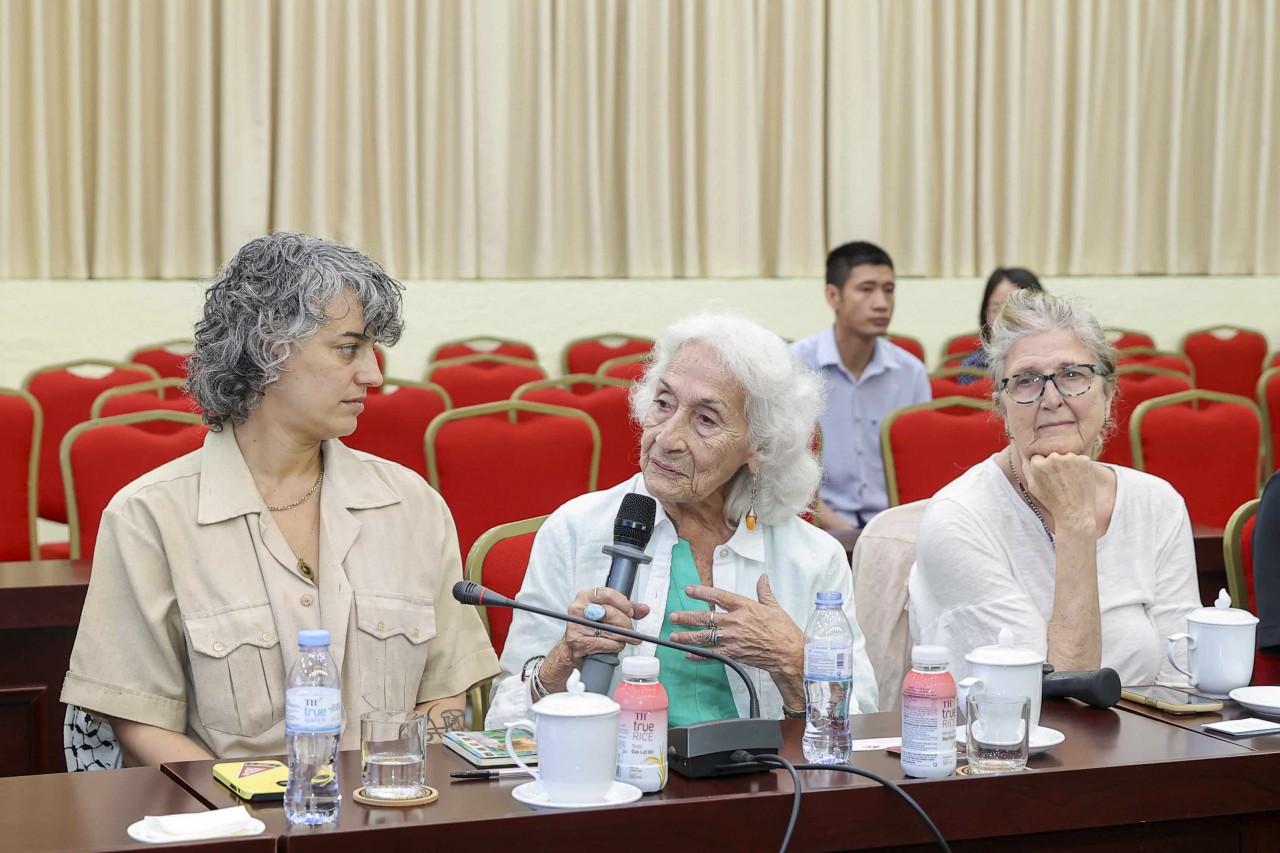50 Years of National Reunification: Inspiring Revolutionaries Worldwide
| First-ever Festival for Peace Launched in War-torn Province of Vietnam | |
| Ho Chi Minh Sea Trail: 50 Years of Vietnamese Resilience |
On April 30, 1975, the day of Vietnam’s great national victory, the spirit of hope and resistance among revolutionaries around the world was reignited. That was the message from Patricia Abarzua Muñoz, president of the Chile-Vietnam Friendship Association.
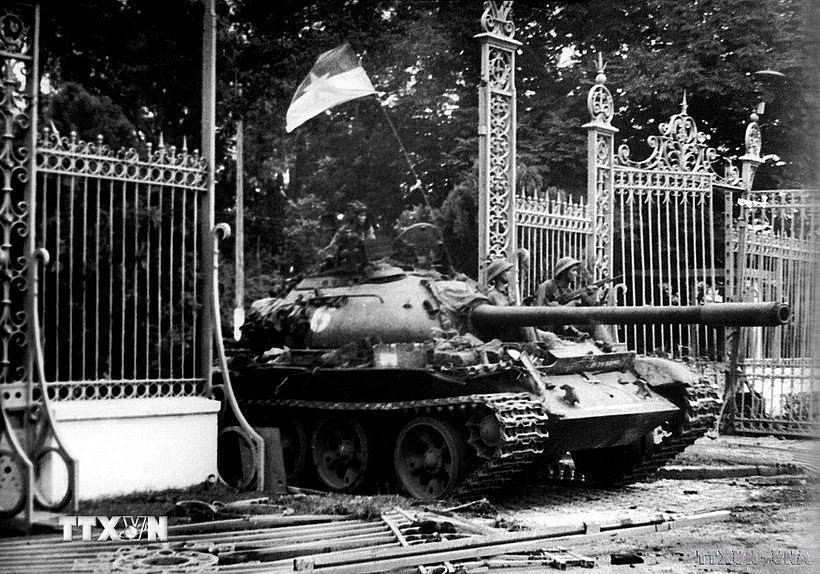 |
| The tank crashed through the gates of Independence Palace on April 30, 1975, marking the historic end of the resistance war against the United States and the complete reunification of the country. (Photo: Tran Mai Huong/VNA) |
Recalling the emotional atmosphere of Vietnam’s victory five decades ago, Abarzua shared her memories "At that time in Chile, we were living under the harsh repression of a military dictatorship. Mainstream media gave little coverage of the situation in Vietnam. However, the news of April 30 spread quickly by word of mouth. We celebrated in our homes, overwhelmed with joy, and tried to follow updates through Radio Moscow—the only foreign media outlet we could access, albeit with difficulty."
The message of Vietnam's triumph echoed across borders. In some places, the reaction was instant, with chants like “Ho—Ho—Ho Chi Minh, we will fight to the end” and “A united people will never be defeated” resonating in the air.
Abarzua stressed that Vietnam not only secured independence and national reunification but also showed the world the profound power of unity, and the belief in one’s principles in pursuing a just cause—one that enabled the Vietnamese people to win freedom, sovereignty, and self-determination.
According to Abarzua, world leaders of that era deeply admired President Ho Chi Minh’s leadership. Both Ho Chi Minh and General Vo Nguyen Giap became symbols of inspiration for liberation movements across Latin America, and for global peace advocates supporting Vietnam’s struggle.
She highlighted the difficult postwar reality that Vietnam faced—a land ravaged by bombs, the memories of thousands of fallen soldiers, victims of war, and the ongoing suffering caused by Agent Orange. All of this marked a daunting new chapter for the country.
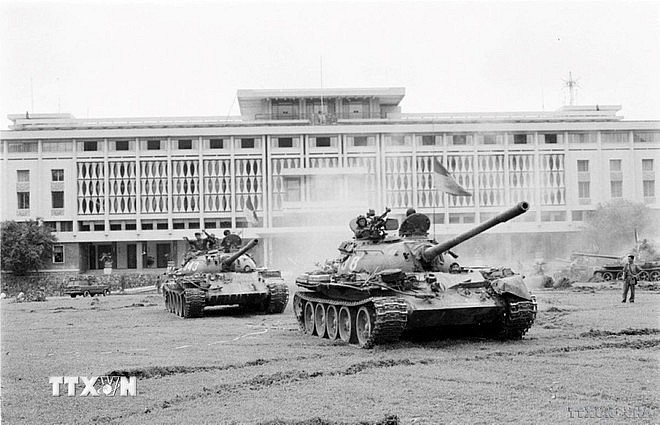 |
| On the morning of April 30, 1975, from all directions, hundreds of tanks, armored vehicles, and infantry units simultaneously advanced toward the Presidential Palace of the Saigon regime, liberating the city. (Photo: Mai Huong/VNA) |
Vietnam’s Doi Moi (Renovation) policy, launched in 1986, marked a turning point in the nation’s postwar recovery. Thanks to these reforms, Vietnam’s economy improved significantly, living standards rose, education advanced, and tourism began to flourish.
Vietnam’s economic opening to the world has been met with widespread enthusiasm. The nation’s achievements are admirable.
Milestones such as joining ASEAN, restoring diplomatic ties with the United States in 1995, and entering APEC in 1998 laid the foundation for expanding global trade, advancing diplomacy through dialogue, and resolving disputes peacefully—seeking the most constructive paths toward economic growth.
Today, Vietnam maintains diplomatic relations with 194 countries, has signed approximately 170 cooperation agreements, and participates in 17 free trade agreements (FTAs)—including one with Chile, signed in 2011.
Vietnam has designated 2025 as a “breakthrough year,” focused on accelerating diplomacy, expanding trade, and contributing to peace, development, and economic growth. The goal is to elevate the country to developed-nation status and deepen its regional, and global integration.
Abarzua also recalled the anti-war and pro-Vietnam solidarity movements in Chile during the 1960s and 70s, which sparked massive mobilizations across Latin America and beyond.
In Chile, workers and students joined nationwide demonstrations calling for peace in Vietnam. One of the most iconic events in Chilean history was a march of thousands of students who walked over 200 kilometers from Valparaíso to Santiago to protest the Vietnam War—a journey recorded in the country’s historical archives.
She noted that the Chilean people supported Vietnam in many ways, including through cultural and artistic expressions—via theater, music, poetry, and painting.
Chilean artists transformed public walls into vital canvases for expressing solidarity. Renowned singer-songwriter Victor Jara directed the musical Viet Rock, written by American playwright Megan Terry.
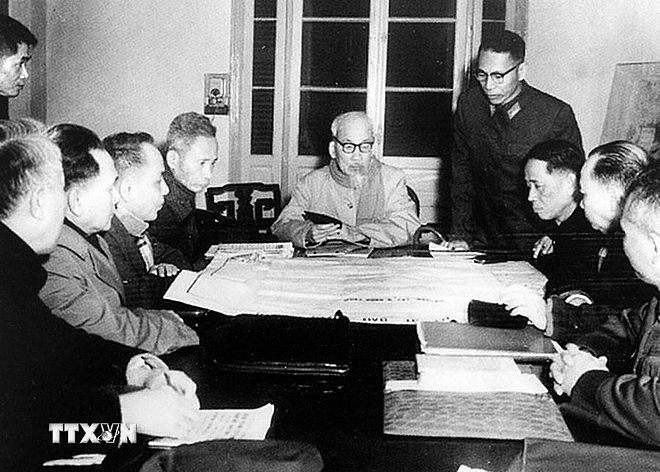 |
| On December 28, 1967, President Ho Chi Minh chaired a meeting of the Politburo of the Central Committee of the Communist Party of Vietnam, during which the decision was made to launch the General Offensive during the 1968 Tet (Lunar New Year). (Photo: VNA) |
Jara also composed the song "El derecho de vivir en paz" (The Right to Live in Peace) in honor of President Ho Chi Minh and Vietnam’s struggle. Today, the song is performed in Spanish in Chile, and in Vietnamese in Vietnam—a cultural bridge reflecting the long-standing brotherhood between the two nations.
Discussing bilateral ties, Abarzua recalled that in the 1960s, Chilean citizens began learning directly about Vietnam’s situation through the first Vietnamese delegates who attended the United Workers’ Federation conference in Chile.
Journalist Fernando Murillo Viaña maintained this early connection and, alongside former President Salvador Allende and politician Clodomiro Almeyda, helped establish a Vietnam friendship group—later known as the Chile-Vietnam Cultural Institute.
This organization remains active today, continuing its work to promote solidarity with Vietnam.
Abarzua said “Today, under the name Chile-Vietnam Friendship Association, we continue gathering longtime friends from the anti-war movement, building new connections and promoting awareness of Vietnam’s progress and development in Chile—and likewise, bringing Chile’s story to the people of Vietnam.”
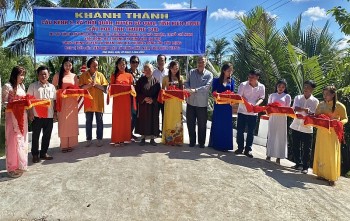 | Bridge in Kien Giang Erected in Celebration of Reunification Day Commemorating the 49th anniversary of the Reunification Day (April 30, 1975 - April 30, 2024), the Kien Giang Union of Friendship Organizations co-operated with the ... |
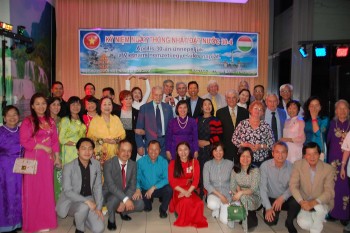 | Vietnamese in Hungary Meet to Mark National Reunification Anniversary The get-togetherwas an opportunity for the embassy, the Vietnamese community in Hungary and Hungarian friends to express pride and gratitude for the contributions of previous ... |
Recommended
 Focus
Focus
Vietnam Leaves Imprints on the World Peacekeeping Map
 Viet's Home
Viet's Home
“Global Vietnamese Singing 2025” - Connecting Hearts Longing for Homeland
 Viet's Home
Viet's Home
Vietnam’s People's Public Security Force Actively Contributes to UN Peacekeeping Operations
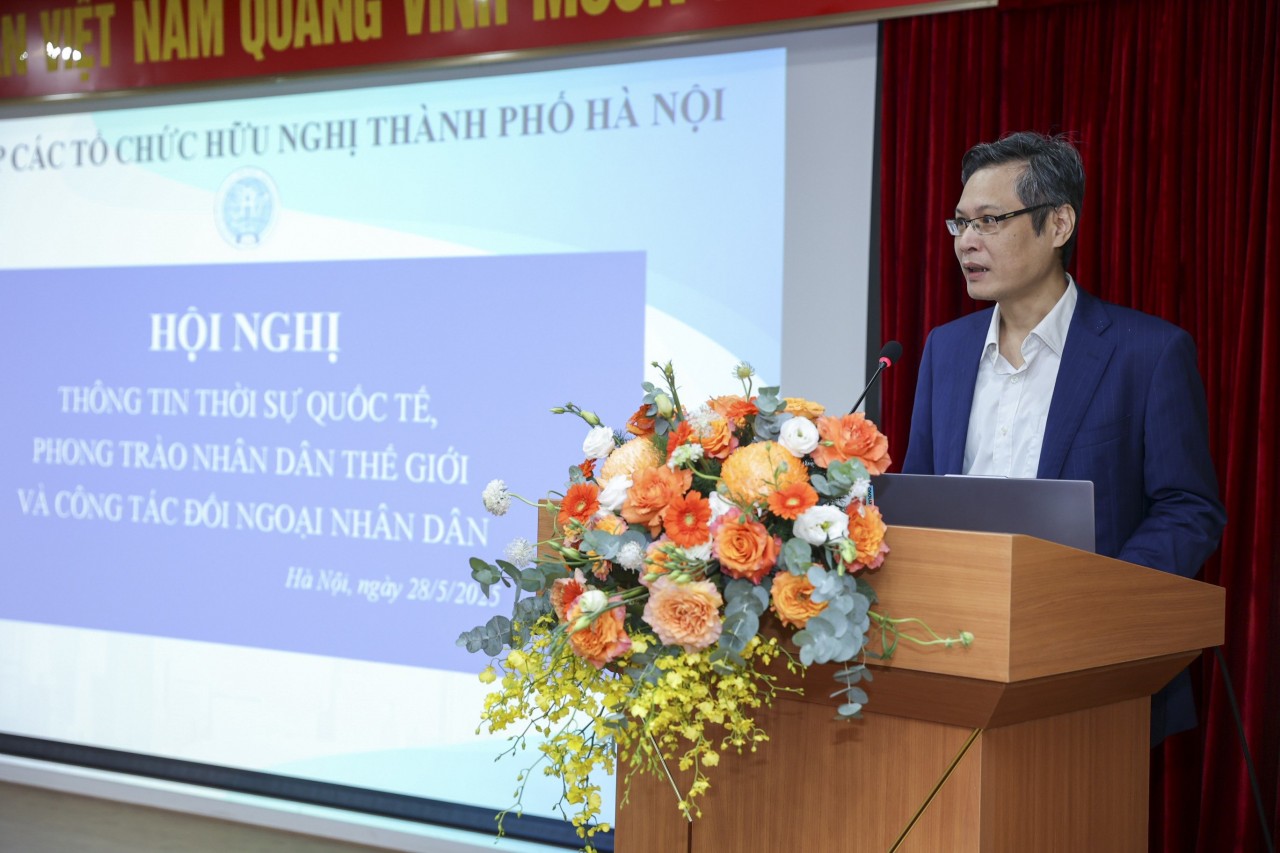 Viet's Home
Viet's Home
HAUFO Enhances Competence of People-to-People Diplomacy Personnel
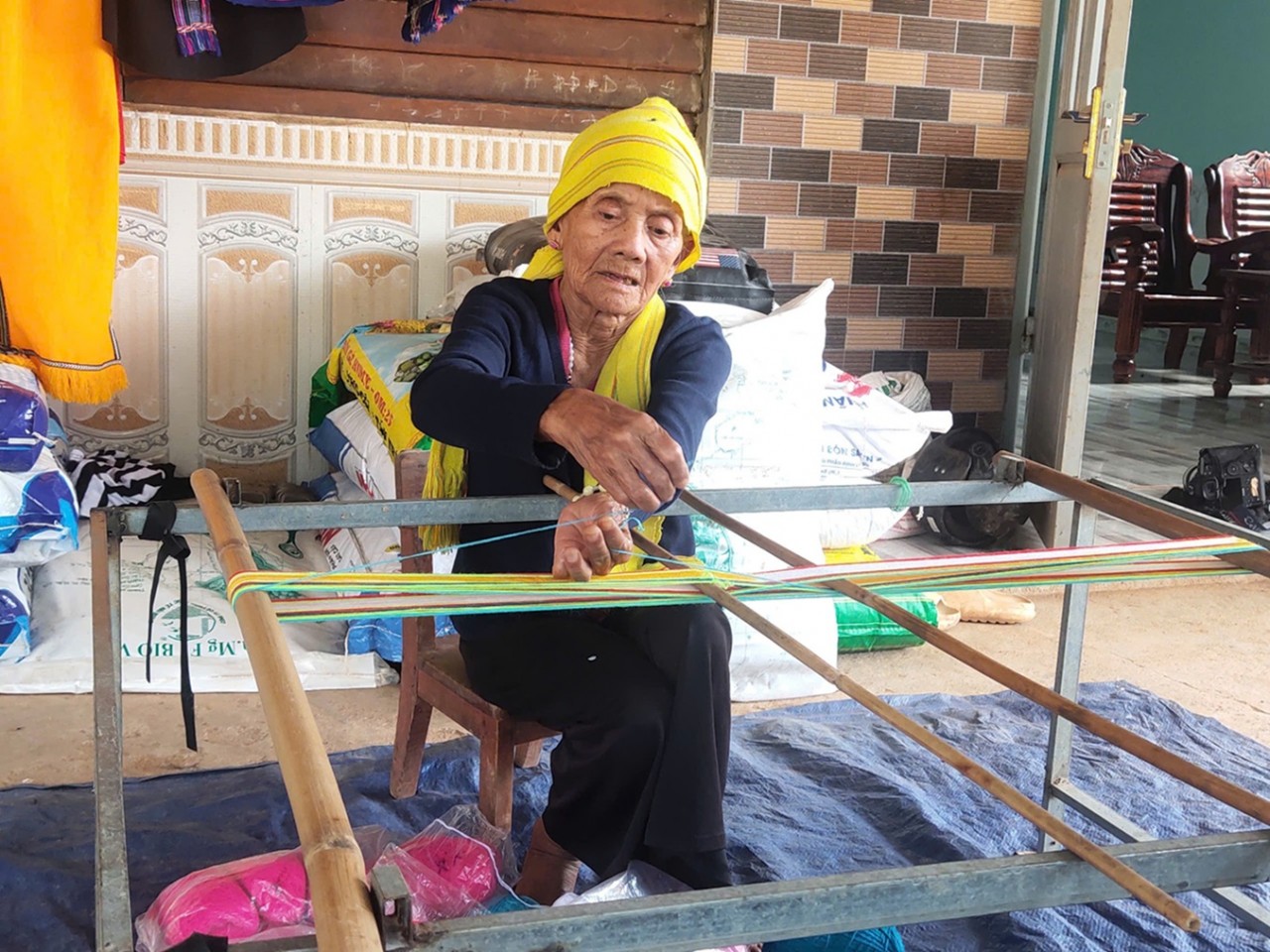 Viet's Home
Viet's Home
Hands that Reserve Da Long Brocade Craft
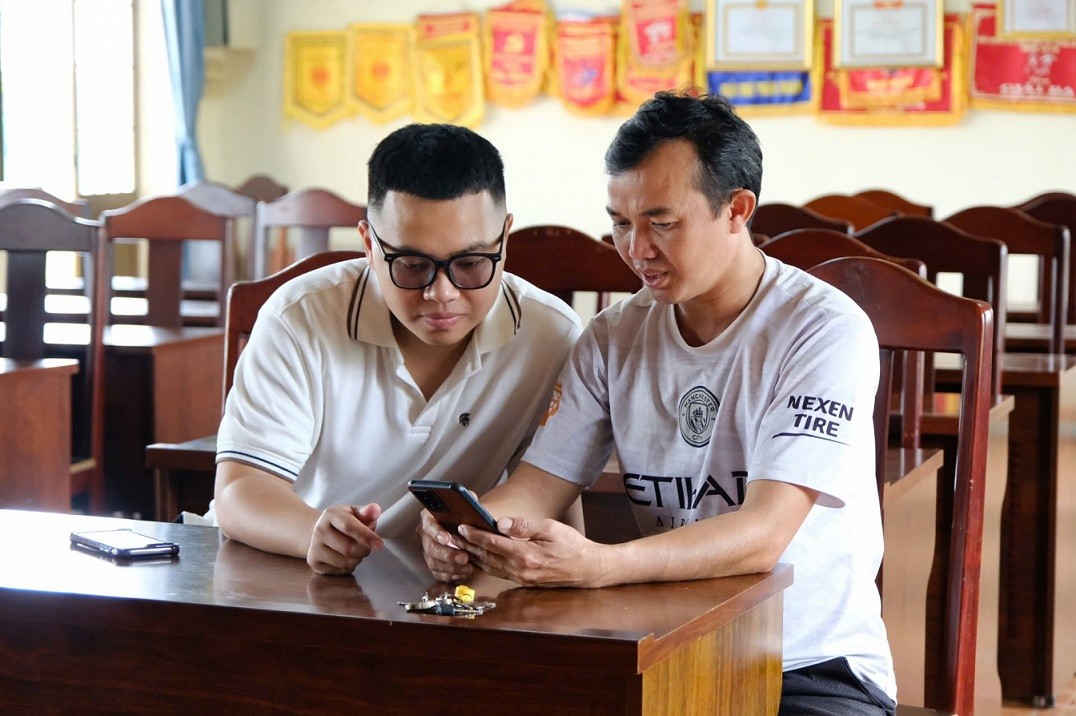 Viet's Home
Viet's Home
Da Rsal – How Digital Transformation Reshape a Poor Commune
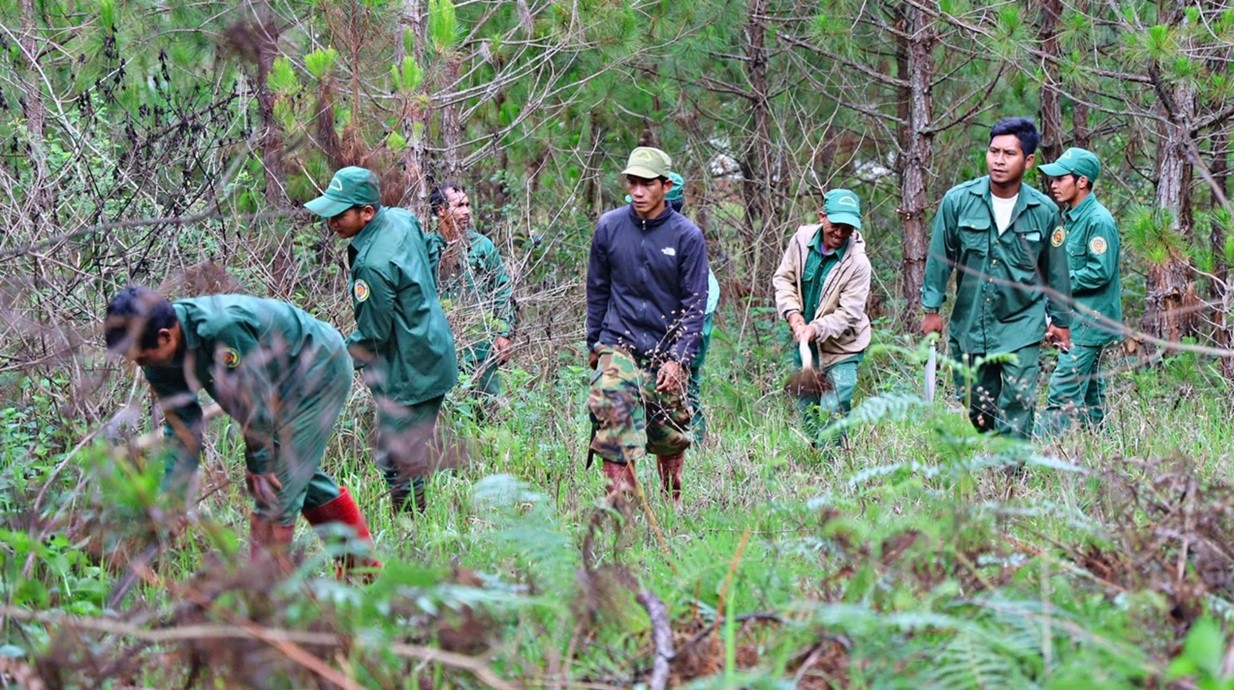 Viet's Home
Viet's Home
Vietnam Classified as “Low Risk” Under the EU Anti-Deforestation Regulation
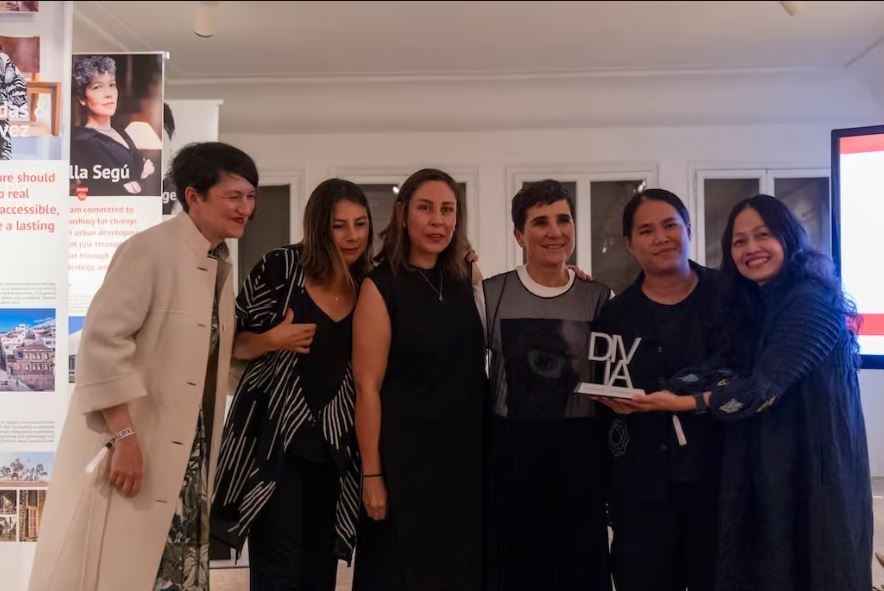 Viet's Home
Viet's Home

